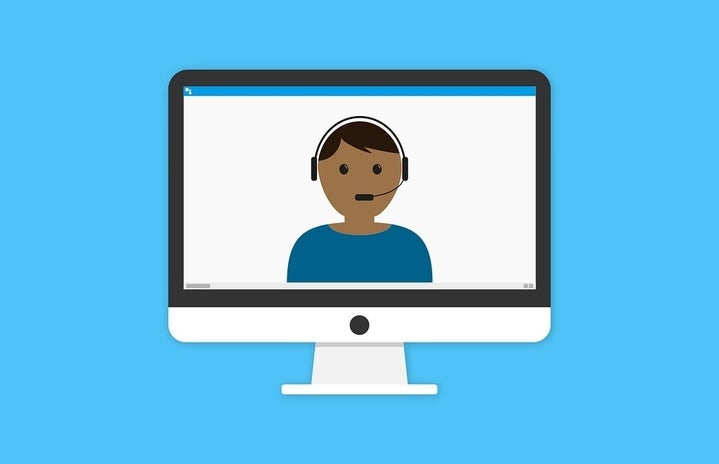Thinking of tutoring but not sure whether to start? Unsure of how to fit it round your schedule? Want to know what the earnings are really like? Then look no further. With over 125 hours of tutoring experience under my belt, I’ll give you the rundown on everything you need to know about online tutoring, ups and downs included.
Before diving in, let me tell you more about myself and why I’m qualified to offer you advice. I was a Pupil Premium student, meaning the school received a bursary from the government to support my academic studies. Part of this bursary went towards online tutoring in KS3, where I was registered with MyTutor and supported with both Science and Maths, if I remember correctly. So, when it came to attending university, my previous experience came to mind. I had the opportunity to be on the other side; to be the university student that tutored secondary school pupils, some of whom wouldn’t have the financial opportunity if it weren’t for the programme. So why wouldn’t I? I registered with MyTutor just over a year ago and have been delivering lessons since. On top of that, I have also been delivering private lessons since September 2021 via Zoom or Google Meet and creating PowerPoint resources. By ‘private’, I mean students that are not registered on any online tutoring platform (such as MyTutor or SuperProf). Finding pupils this way is harder, but the pay is better, and they are usually more flexible in terms of scheduling lessons.
The hardest part of tutoring is, in my opinion, getting started. I started private tutoring before moving onto MyTutor, but this was entirely by luck. Shortly after finishing A-levels, my two English teachers came into my workplace, and we started talking about employment. I shared my anxieties with them and said about how I’d be looking for a job at uni, alongside my job at home (for holiday work), and one of them suggesting online tutoring. She taught a student in Year 11 who was looking for an English tutor, so was happy to recommend me. At this time, I hadn’t considered tutoring as a viable job for me. After all, I had no idea how it worked and there weren’t many ways to research the ins and outs of it. But I gave it a go and haven’t looked back since. I tutored that pupil for the duration of Year 11 and have now taken up another student who has just started Year 11. I opted to create lesson plans via PowerPoint, purely because I had no clue how else to do it and it seemed professional to me. However, I soon realised that I was spending far too long in planning lessons, especially because they would often be adapted on-call to focus more on certain tasks that my student struggled with.
“But I gave it a go and haven’t looked back since.”
As for MyTutor, I signed up to the website around mid-November 2021 after feeling confident in how my private lessons were going. I knew about the platform because of my own experience but did research popular tutoring websites anyway and this seemed to be the most common one. Admittedly, getting registered on MyTutor can be a challenge, but no more so than it is to apply for most other jobs. MyTutor are serious about safeguarding- which, of course, is a great thing- so creating a profile can take some time (around 10-15 minutes). I remember having to provide both a personal and university email, then doing standard profile-creating tasks. I was asked to provide my qualifications, which enables the platform to determine what subjects you are suitable to tutor and at what level. I also needed to formulate and respond to a question, which I was later asked to expand on in my interview. If your application is accepted, MyTutor will invite you to a 10-minute informal interview, which I remember being a lot more anxious about than I needed to be. It ended up being good practice on using the whiteboard as well as a confidence boost. After my application was approved, I had to get a DBS. This costed around £40 and a percentage of your first 10 lessons is deducted to pay for it. However, if you already have a DBS check that is under a year old, I’m fairly sure that you can get it verified by MyTutor.
When it came to finding my first pupils, it was a waiting game. On MyTutor, it took around 2 or 3 weeks for opportunities to start coming up, but after that they’re fairly regular (normally coinciding with the start of term or half-term). I prefer tutoring mostly on the ‘School Opportunities’ section, purely because you are given fixed slots (e.g 12 lessons with Annie, every Thursday 4-4.55pm excluding half-term) and you get paid even if the pupil doesn’t show up. The ‘Matching Teams’ and ‘Tutor Requests’ sections are normally vaguer, as this is where parents post on behalf of their students, or the students themselves. It also usually involves you having a free 15-minute meeting with the potential student, discussing learning style, grade, focus etc. Even then, it is no guarantee that you have a new student: they can opt not to go forward, or your availability might not work for them. That is why I prefer the ‘School Opportunities’, because MyTutor looks at your availability and only shows you slots that you can do. All I have to do is see whether they clash with any seminars. As for private tutoring, I found my most recent pupil about a month after putting an ad in a Facebook group. We had a quick call, discussed availability and had the first lesson 2 days later.
As said before, MyTutor determines what subjects you are qualified to teach in. One thing I love about the platform is your freedom of choice, where you can decide what to tutor. It is completely acceptable to turn down requests and it won’t affect your credibility (unless you turn down every opportunity- but chances are low if your profile accurately reflects your availability and subject variety). For example, I am qualified to tutor A-level History (according to MyTutor, after I provided my grade) but don’t feel confident doing so, so have opted not to take on any pupils for this subject. If GCSE or KS3 History students come up, I am more open to it. You are also given vague information about the student when you accept the lesson slots. A fictionalised example would be: Annie is a female Year 10 student who is working at a grade 3 but is aiming for a 5. Focus should be on the AQA exam board, Language Paper 2 and using a variety of writing techniques in her work. MyTutor is user-friendly, so this information would be provided more clearly on the student’s profile. When it comes to teaching, you can join the lesson up to 10-minutes before it is scheduled to start, giving you the opportunity to upload any resources and go over your plan. On the whiteboard, you can control where the student is looking, add multiple pages, type, draw, add images and much more. You’ll be given training on using the platform, so it isn’t as scary as it sounds. The whiteboard feature is invaluable, as it means far less prep is required compared to private lessons, and everything you need is centralised to one place. Lessons are 55 minutes long, so I usually use the next 5-minutes to write up a summary of the lesson and ideas for the next one. This document is provided by MyTutor and is easy to access, so I usually have one tab with the actual lesson, and another with my notes from the previous and plan. A downside of MyTutor is the time in which it takes to get paid. You are paid fortnightly, with lessons from the 1st-15th of the month being on one payslip, and the rest of the month on the other. However, I usually don’t get paid until the 19th and 4th of the month, so make sure to account for this in your budgeting! Another issue with MyTutor is the connectivity, where the audio can lag or not be there at all. There is a helpline, however, for when that does happen, and your pay isn’t affected. The biggest inconvenience for this is typing in the chat function with your pupil instead of verbally communicating with them.
“A downside of MyTutor is the time in which it takes to get paid”
I arguably enjoy private tutoring more than I do platform-tutoring. This is because the pupils that I’ve taught privately are willing students, not coerced into it by their parents or the school. At least, not so much that they are resistant to trying. It means that the feedback is more useful, and the pupil has more control over what to focus on. Also, I’ve found that the experience is overall more friendly. This is probably because, with MyTutor, each lesson is recorded so the pupil can rewatch it later, and you get random critiques of your teaching style. Professionalism is important, of course, but with private tutoring I feel that a better rapport has been developed with the students. Both students that I’ve privately tutored go to my old secondary school, meaning I am familiar with the curriculum and teaching style. It also acts as a discussion point, especially during the first few lessons together. Making real-world connections or linking to school-lessons really helps to reinforce the pupil’s knowledge. On top of this, with private tutoring, there is always the option to message the parent(s) if the pupil is unsure of what they have studied or has been asked to bring a copy of the text to next lesson. In this case, I’ll message the parent(s) and ask them to remind the pupil. Parents also like being involved in the tutoring process. After all, they’re letting a young adult boss their child around, without knowing them very well. Something I have struggled with is finding a suitable platform to carry out these private lessons. In the past I was using Zoom, but they recently introduced a policy that cuts out calls after 40-minutes unless you pay a subscription. I did pay for a month or two, but decided that its wasn’t worthwhile, especially considering I have one private student at a time. More recently, I have moved over to Google Meet, which has been a great site so far.
On the whole, I’d say that online tutoring is a great source of income, especially when you can’t commit to full-time or long-term work. The pay is good, and you learn to be efficient in lesson-planning (I now spend around 10 minutes planning each lesson on MyTutor, or 30-40 for private tutoring), as well as having the option for pay rises. I’m happy to continue charging £20 per hour for private tutoring, which is what my A-level teacher recommended when I first started out. I feel guilty about this sometimes but remember that it isn’t easy chasing up parents about pay, getting to know the student’s learning style and adapting plans in the lesson. On MyTutor, the pay varies depending on what level you teach, how experienced you are and whether you’re doing a 3-1 or 1-1 lesson. I’m a huge fan of the new payment scheme, which allows you to earn ‘coins’ that go towards increasing your pay. Last academic year, I was earning £11p/h for each GCSE lesson taught on a 1-1 basis but am now earning £12p/h because of the changes. The difference between income on private and platform-based tutoring is noticeable, but overall, I’d say it is worth it. Understandably, MyTutor need to take a fee out for their platform.The main reason why I accept the pay difference is because of the convenience of MyTutor; it drastically cuts down lesson-planning time, you get paid regardless and it is easier to find new students.
I hope that this article has been helpful and has given you an idea as to whether or not you think online tutoring could be a match for you. At the end of the day, there are other ways to earn money as a student, so don’t feel pressured to make any decisions now. If you are thinking of starting online tutoring, put out messages in local Facebook groups, email your old teachers and start your application for MyTutor (remember that it can take around a month until you get any lessons, set-up included). Worst-case scenario, nothing happens. More realistically, you have flexible work, something to put on your CV and control your pay.
I will now end with a plug. If you sign up to MyTutor via this link, I get an extra £10 added to my pay: https://www.mytutor.co.uk/tutors/signup/?rc=KELSEY2366098



